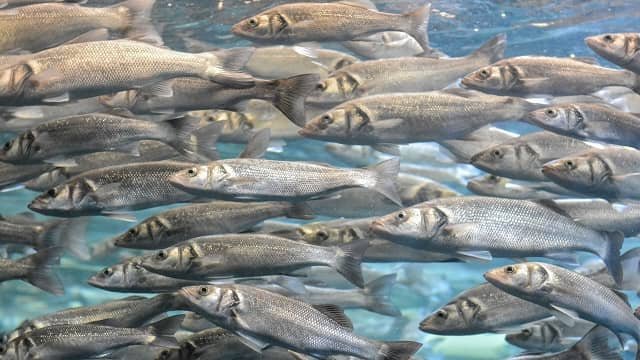
Aquaculture has become a significant economic activity globally, providing sustenance to over half of the world’s population that consumes fish and seafood. However, its rapid growth is not without challenges. As the industry strives for increased efficiency and innovation, environmental concerns and resource demands raise the question: Is aquaculture truly sustainable?
The answer lies in looking beyond traditional aquaculture methods, such as antibiotics, and embracing innovative and ecological solutions.
Scientists from the Gorgan University of Agricultural Sciences and Natural Resources, the Polytechnic University of Marche, and the University of Sannio have published a scientific review presenting several alternatives to replace antibiotic therapies and make the aquaculture industry, particularly in Europe, more sustainable.
A Blessing and a Burden
On one hand, aquaculture offers a crucial source of protein, alleviating pressure on wild fish populations. It creates jobs, fosters economic development, and can even enhance food security in specific regions. However, its environmental impacts cannot be ignored.
Environmental Concerns: A Double-Edged Sword
While it provides food security, aquaculture raises environmental concerns. Traditional practices, such as the rampant use of antibiotics, can harm the environment and contribute to antibiotic resistance.
Here are some key issues the aquaculture industry must overcome:
- Fish farm escapes: These escapes can disrupt wild populations through genetic mixing, competition, and disease transmission.
- Nutrient enrichment: Excess nutrients from fish waste can trigger algae blooms, oxygen depletion, and habitat degradation.
- Chemical releases: Antibiotics, anti-foulants, and other chemicals used in aquaculture can harm the ecosystem and contribute to antimicrobial resistance.
- Depletion of wild fish populations: Some aquaculture feeds rely on wild-caught fish, indirectly impacting marine predators.
- Habitat disturbance: Aquaculture infrastructure can disrupt sensitive ecosystems.
Seeking a Sustainable Future: Promising Solutions
The good news is that the aquaculture industry is actively addressing these challenges. Here are some promising solutions identified by scientists:
- Recombinant vaccines: Custom-made immunity boosters target specific pathogens, protecting fish from disease outbreaks and reducing the need for antibiotics.
- Bioactive compounds: Diets rich in natural molecules, present in insect flours, for example, can act as immune system boosters and benefit other cultivated species.
- Probiotics, prebiotics, and symbiotics: These beneficial gut allies modulate fish microbiota (known as the second brain) and promote digestion, growth, and overall well-being.
Additionally, researchers identified that adopting sustainable protocols is crucial for the success of this blue revolution. This includes:
- Closed-loop systems: These ingenious setups recycle water and waste, minimizing environmental impact and creating a self-sustaining ecosystem for fish.
- Stricter regulations: The implementation and enforcement of robust environmental regulations ensure responsible practices and protect the delicate balance of our aquatic ecosystems.
The Way Forward: A Balanced Approach
“We have reported a series of studies highlighting the beneficial effect of using insect flour, recombinant vaccines, and beneficial bacteria individually or in combination with natural substances that can act as substrates for bacteria present in the gut or the use of symbionts in the cultivation of the most representative species of the European aquaculture industry,” conclude the scientists.
The future of aquaculture depends on a balanced approach. We need to boost production to meet the growing demand for food while minimizing environmental impact. By adopting sustainable practices, technological advancements, and responsible regulations, we can unlock the true potential of aquaculture as a vital and sustainable food source for future generations.
Reference (open access)
Hoseinifar, Seyed Hossein, Ghasem Ashouri, Luca Marisaldi, Michela Candelma, Danilo Basili, Andrea Zimbelli, Valentina Notarstefano, Lucrezia Salvini, Basilio Randazzo, Matheo Zarantoniello, and et al. 2024. “Reducing the Use of Antibiotics in European Aquaculture with Vaccines, Functional Feed Additives and Optimization of the Gut Microbiota” Journal of Marine Science and Engineering 12, no. 2: 204. https://doi.org/10.3390/jmse12020204

